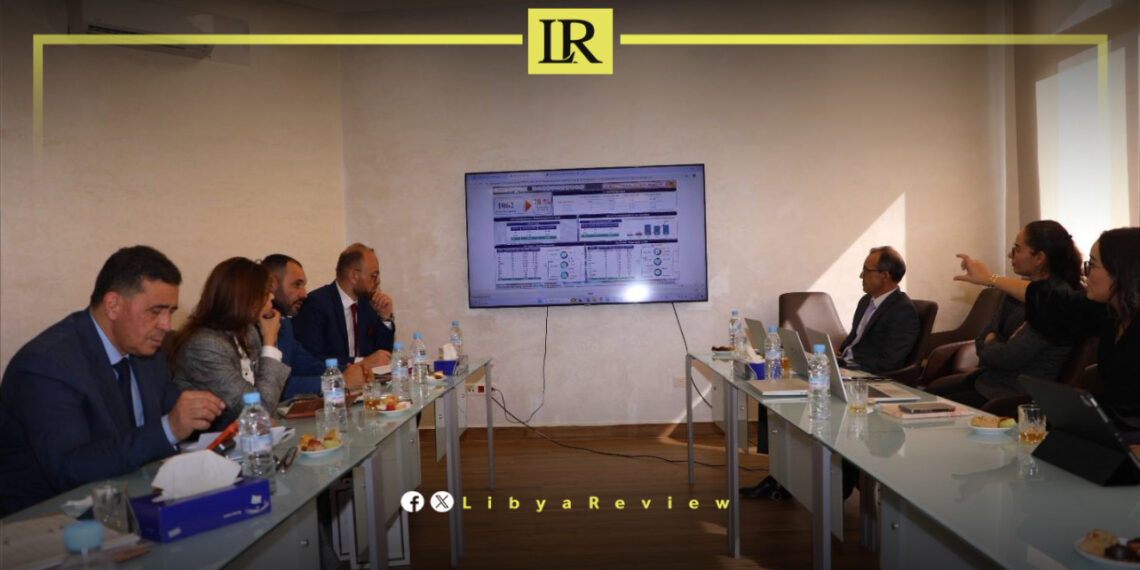A delegation from Libya’s Ministry of Economy and Trade held wide-ranging talks in Rabat with senior officials from Morocco’s Ministry of Industry and Trade, to discuss efforts aimed at expanding economic cooperation and improving connectivity between the two countries.
The discussions centered on establishing a commercial maritime line linking Libyan and Moroccan ports, as well as launching a direct flight route to support business travel and accelerate investment flows between Tripoli and Rabat.
The Libyan delegation was led by Ministerial Adviser Shathar Al-Sayid, who underscored Libya’s strategic geographical position and its potential role as a transit hub for trade toward African and Mediterranean markets. She said enhanced cooperation with Morocco could help both countries strengthen supply chains, promote regional integration, and unlock new opportunities for private-sector growth.
Al-Sayid highlighted that 2023 recorded the highest level of trade exchange between Libya and Morocco, supported by streamlined procedures for Libyan exports entering the Moroccan market. She noted that around 70 percent of Libya’s date exports are shipped to Morocco, reflecting strong commercial ties and growing consumer demand.
She also urged Moroccan authorities to address the difficulties faced by Libyan traders, particularly with respect to visa procedures. Simplifying these requirements, she said, would give private companies greater flexibility to expand partnerships and launch new commercial ventures.
During the meeting, Al-Sayid presented a draft memorandum of understanding prepared by the Libyan Ministry of Economy. Moroccan officials will review the document ahead of the expected visit of Libyan Minister of Economy Mohamed Al-Hwaij to Morocco next month, following an invitation to participate in the Second Business Forum on the African Continental Free Trade Area.
Fathi Al-Amin, Chairman of the Misrata Chamber of Commerce, Industry, and Agriculture, stressed the importance of facilitating entry procedures for business delegations from both sides. He expressed the chamber’s readiness to host Moroccan economic teams in Misrata, which offers a free zone with competitive investment incentives and an advanced industrial base capable of supporting joint projects.
Moroccan officials delivered a comprehensive presentation on industrial development programs, investment opportunities, and current trade indicators. Both sides reaffirmed their commitment to strengthening economic and commercial ties, creating new investment channels, and expanding private-sector cooperation to serve shared interests.


